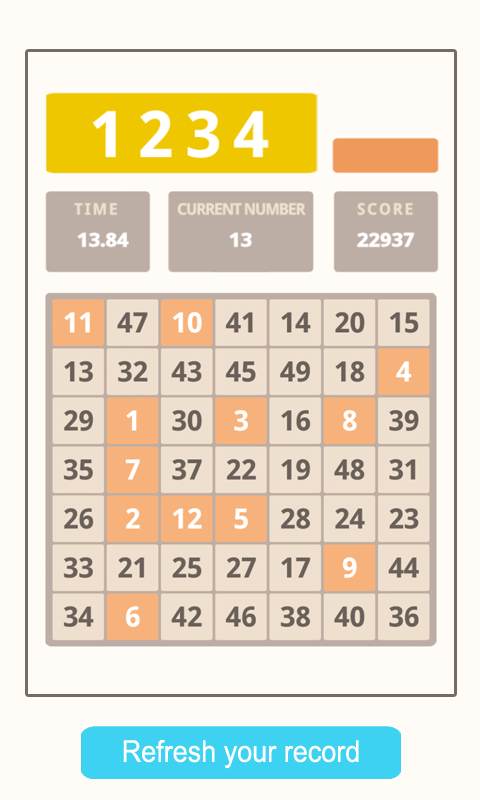1-2-3-4 Nostalgia
 What are the last two digits of
3
1
2
3
4
?
What are the last two digits of
3
1
2
3
4
?
Source: Loren C. Larson, Problem-Solving Through Problems , Problem no. 3.2.3 (without modification).
This problem is a part of the set Along Came A Spider. .
The answer is 69.
This section requires Javascript.
You are seeing this because something didn't load right. We suggest you, (a) try
refreshing the page, (b) enabling javascript if it is disabled on your browser and,
finally, (c)
loading the
non-javascript version of this page
. We're sorry about the hassle.
4 solutions
Discussions for this problem are now closed
Nice. Can we use binomial expansion for 7 1 2 3 4 ? We have already considered this solution (before we posted ours, when we were discussing various approaches), and decided to not post it, because, we could not stand this procedure for other cases; in short, we could not generalize. Can you help?
7 1 2 3 4 = 4 9 6 1 7 = ( 5 0 − 1 ) 6 1 7 ( 0 6 1 7 ) 5 0 6 1 7 − ( 1 6 1 7 ) 5 0 6 1 6 + . . . + ( 6 1 6 6 1 7 ) 5 0 − ( 6 1 7 6 1 7 )
= 6 1 7 × 5 0 − 1 = 3 0 8 4
So last two digits would be 8 4
I can't generalize it, but this can be used for almost every number I can think of right now.
Can you give me an example of such number?
Thanks. There are infinite examples. Are you asking for a typical exponential representation such as 1 2 3 4 5 6 ?
@Sheikh Asif Imran Shouborno – Square up 123 and it would become ( 1 0 k − 1 ) 2 . Follow the same process!
I mean an example where such manipulation won't work
3^0 = 1
3^1 = 3
3^2 = 9
3^3 = 27
3^4 = 81
3^5 = 243
3^6 = 729
3^7 = 2187
3^8 = 6561
3^9 = 19683
3^10 = 59049
3^11 = 177147
3^12 = 531441
3^13 = 1594323
3^14 = 4782969
3^15 = 14348907
3^16 = 43046721
3^17 = 129140163
3^18 = 387420489
3^19 = 1162261467
3^20 = 3486784401
3^21 = 10460353203
3^22 = 31381059609
3^23 = 94143178827
3^24 = 282429536481 .
.
.
.
.
Notice how the pattern of the last two digits repeats from the power 20. If you take 1234/20 you get 14 as a remainder, so: 3^1234 will have the same last 2 digits as 3^14
Hence the answer is 69
Moderator note:
This solution is right but is very impractical. Since you're only worrying about the last two digits, you can just keep the last two digits of 3 x , this simplifies the arithmetic calculation by a lot. And it's easy to make an error in the calculation which will lead to a wrong value of cycle.
i solved it by the same way
Divide and Conquer:
3
4
≡
8
1
(
m
o
d
1
0
0
)
3
8
≡
8
1
×
8
1
≡
6
1
(
m
o
d
1
0
0
)
3
1
0
≡
9
×
6
1
≡
4
9
(
m
o
d
1
0
0
)
3
2
0
≡
4
9
2
≡
1
(
m
o
d
1
0
0
)
3
1
2
3
4
≡
(
3
2
0
)
6
1
(
3
1
4
)
≡
(
3
4
)
(
3
1
0
)
≡
8
1
×
4
9
≡
6
9
(
m
o
d
1
0
0
)
6 9 . ( A n s . )
Euler's Theorem (A little advanced approach for an elementary problem):
We will use Euler's totient function to count how many integers are relatively prime to 1 0 0 .
ϕ ( 1 0 0 ) = ϕ ( 2 2 5 2 ) = 1 0 0 ( 1 − 2 1 ) ( 1 − 5 1 ) = 4 0 .
Now, Euler's theorem implies that, 3 4 0 ≡ 1 ( m o d 1 0 0 ) .
So, 3 1 2 3 4 ≡ ( 3 4 0 ) 3 0 ( 3 3 4 ) ≡ ( 3 4 0 − 6 ) ( m o d 1 0 0 )
Now, our duty is curbed down to find the inverse of 3 6 , where 3 6 ≡ ( 2 7 ) 2 ≡ 2 9 ( m o d 1 0 0 ) .
The inverse, my friends, is easily found to be 6 9 . The last step is left as a homework.
Moderator note:
You could simplify your work by apply 3 3 4 = 9 1 7 = ( 1 0 − 1 ) 1 7 ≡ − 1 + 1 7 0 ≡ 6 9
3 1 2 3 4 = 9 6 1 7 = ( 1 0 − 1 ) 6 1 7
Using binomial expansion,
( 1 0 − 1 ) 6 1 7 = ( 0 6 1 7 ) 1 0 6 1 7 − ( 1 6 1 7 ) 1 0 6 1 6 + . . . − ( 6 1 5 6 1 7 ) 1 0 2 + ( 6 1 6 6 1 7 ) 1 0 − ( 6 1 7 6 1 7 ) = 1 0 0 k + 6 1 7 0 − 1 = 1 0 0 α + 6 9
Therefore, 3 1 2 3 4 ≡ 6 9 m o d 1 0 0
So the last two digits are 6 9